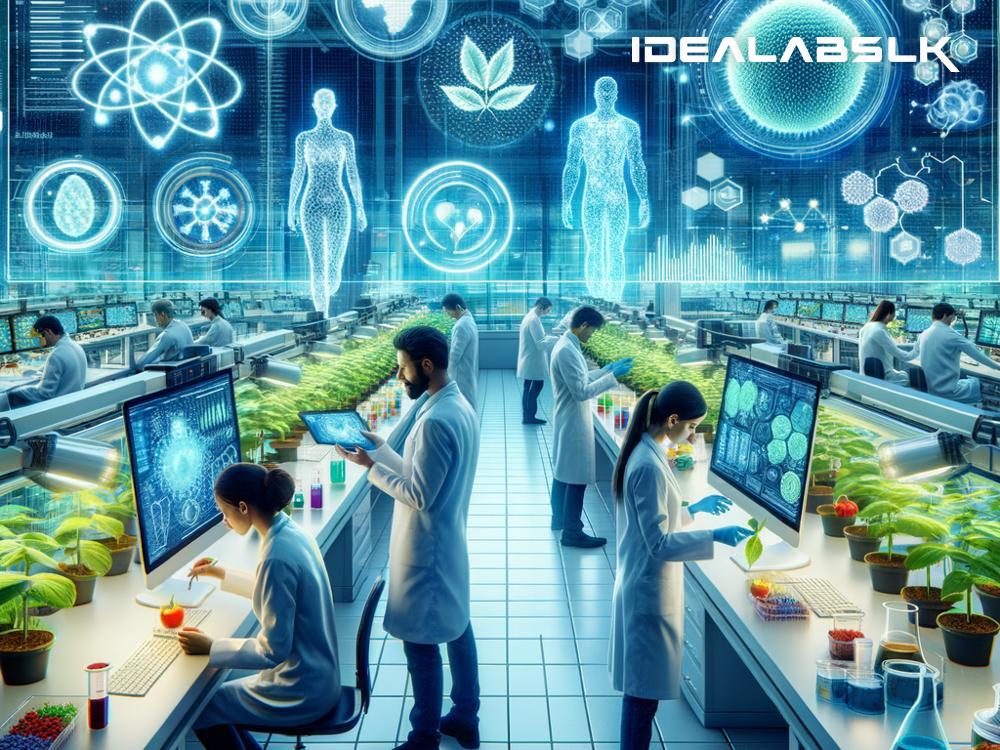Tapping Into the Future: How AI is Crafting the Next Generation of Plant-Based Foods
In recent times, we’ve been witnessing a remarkable shift in how we think about what’s on our dinner plates. The movement towards plant-based eating isn’t just a trend; it’s a response to global challenges like climate change and health concerns. But as appetites for these alternatives grow, how do we keep up with demand while staying creative? Enter artificial intelligence (AI). It might sound like something out of a sci-fi movie, but AI is here and it’s revolutionizing the way we create customizable plant-based foods. Let’s dive into this futuristic kitchen and see what’s cooking.
AI: The Chef That Learns Your Taste
Imagine walking into a restaurant where the chef knows exactly what you’re craving before you even say a word. This is pretty much what AI does in the realm of plant-based food creation. AI systems can process vast amounts of data on consumer preferences, nutritional needs, and food science. This means they can predict what combinations of ingredients might hit the spot for different individuals or groups. Ever fancied a protein-packed burger that tastes like the sea? AI might suggest adding algae into the mix, crafting a recipe that’s both novel and nutritious.
Customizing Nutrition with Precision
One of the most exciting aspects of using AI in food technology is its ability to tailor nutrition to individual needs. Not everyone shares the same dietary requirements; some may lack certain vitamins, while others might need a low-sugar diet. Traditionally, addressing these needs has been a blanket approach, but AI changes the game. By analyzing health data (with permission, of course), AI can help design plant-based foods that meet the specific nutritional needs of an individual. For instance, if you’re lacking in Vitamin B12, your next plant-based snack could come fortified with exactly what you need.
Speeding Up the Taste Test
Developing plant-based foods that mimic the taste and texture of animal products is a complex process. It involves a lot of trial and error, something that’s both time-consuming and costly. AI speeds up this process by simulating how different ingredients interact. This means that food scientists can now quickly sift through hundreds of potential ingredient combinations, finding the perfect recipe without wasting actual food. It’s like having a fast-forward button, bringing tasty innovations to our tables quicker than ever before.
Going Beyond the Impossible
Have you ever heard of the Impossible Burger or its counterparts? These plant-based meat alternatives have taken the world by storm, but they’re just the beginning. AI is pushing the boundaries even further, envisioning foods we’ve never seen or tasted before. By analyzing plant compounds at a molecular level, AI can help discover unexpected flavor and texture matches. This could lead to the creation of entirely new types of food, transforming plant-based eating from a limitation into an exploration.
Making Sustainable Eating Exciting
A significant benefit of plant-based diets is their smaller environmental footprint compared to traditional meat consumption. However, convincing everyone to make the switch isn’t easy. That’s where AI’s ability to innovate comes in handy. By offering an ever-evolving menu of delicious, tailored, and nutritionally complete options, AI makes the idea of sustainable eating far more appealing. It’s not just about replacing meat anymore; it’s about creating a whole new world of food experiences that are kind to our bodies and the planet.
The Road Ahead
While the blend of AI and plant-based food creation is still in its early days, the potential is enormous. As AI technology advances, we’ll see even more personalized, nutritious, and eco-friendly food options on our tables. This doesn’t mean that traditional cooking will disappear. Instead, think of AI as a tool that enhances our culinary creativity, helping us discover the untapped potential of plant-based eating.
In conclusion, the fusion of AI with the development of customizable plant-based foods is opening new avenues for dietary innovation. It’s a promising solution to today’s health and environmental challenges, making personalized nutrition and sustainable eating habits accessible and enjoyable for everyone. As we continue to navigate this exciting culinary landscape, one thing is clear: the future of food looks plant-based, and AI is our guide.

